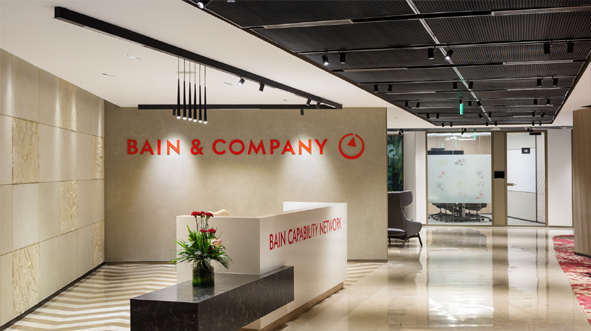Major corporations have pledged to embrace circularity

According to a recent study by Bain & Company, 55% of major businesses have committed to embracing circularity, yet a linear mindset is hindering their ability to fully integrate it into their operations. Bain’s research indicates that more than half of the circular initiatives pursued by businesses are narrowly focused on recycling or waste management strategies, rather than encompassing the comprehensive array of technologies and business models required for a circular economy. These encompass product redesign for longevity, promoting reparability, adopting leasing models, minimizing virgin material use, and offering complementary services across a product’s lifecycle. These findings are drawn from Bain’s new report, “Strategy in a Circular World,” based on a survey of 400 leading organizations.
Jenny Davis-Peccoud, a partner at Bain & Company and the global head of the firm’s Sustainability & Responsibility practice, emphasized the need for executives to shift their mindsets away from linear business models and instead focus on decoupling growth from resource consumption. She noted that many companies have initiated improvements in recycling and waste management, but to expedite progress, they must embrace new technologies and reconfigure their value chains. For instance, companies investing in recyclable PET bottles are now also investing in recycling infrastructure to enhance access to circular materials.
Leaders in circularity are vigilant for pivotal moments that indicate the acceleration of the circular economy, including changes in infrastructure, regulations, and consumer behavior. For instance, in the electric vehicle industry, the expansion of manufacturers’ electric models and the development of charging infrastructure signal growing consumer acceptance. Staying attuned to these developments enables executives to make timely investments in circularity.
Hernan Saenz, a partner at Bain & Company and the global head of the firm’s Performance Improvement practice, highlighted the significance of linking circular strategies to business objectives in a world marked by impactful environmental regulations, resource scarcity, trade tensions, and supply chain disruptions. He emphasized that executives need both the vision to envision a circular future for their industry and the drive to translate that vision into tangible actions today.
The study highlights three sources of circular value that companies should take into consideration:
Virgin Material Consumption Rate: Companies producing disposable or short-lived products, such as plastic bottles, can generate circular value by reducing the consumption of virgin materials and ensuring that raw materials are recycled at the end of the product’s life cycle. These businesses may discover growth opportunities in sectors like reverse logistics and infrastructure or by supplying circular feedstock. For instance, Apple has pioneered the use of disassembly robots to recover scarce materials like gold, cobalt, tungsten, and rare earth elements from used iPhones.
Product Lifespan: Extending the lifespan of products proves to be an effective strategy, especially for high-value premium products that are both durable and easy to disassemble. Such companies will adapt their business models to engage customers beyond the initial purchase and develop cost-effective repair options, including warranties for the right to repair. Michelin, for example, is actively developing a tire re-tread business and offering tire-related services that include on-site managers to conduct health, safety, and maintenance checks.
Product Capacity Utilization: Companies manufacturing products with fast upgrade cycles or short lifespans can enhance product utilization by exploring various uses, sales models, and business approaches. This increased product utilization can foster growth in enabling services and platforms, reverse logistics and infrastructure, and service-and-leasing models. Dell’s APEX, for instance, offers tailored packages of hardware, software, and cloud storage as part of a subscription service.
Courtesy to Bain & Co





Comment here